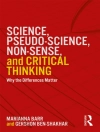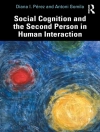Stephen K. Levine’s new book explores the nature of traumatic experience and the therapeutic role of the arts and arts therapies in responding to it. It suggests that by re-imagining painful and tragic experiences through art-making, we may release their fixity and negative hold on our lives and resist the temptation to assume the role of the victim. Among the many concerns that the book addresses is the damage done by the tendency to adopt stock methods of understanding and superficial explanations for the depths, complexities, wonders, and exasperations of human experience. The book explores the chaos and fragmentation inherent in both art and human existence and the ways in which memory and imagination can find meaning by acknowledging this chaos and embodying it in appropriate forms.
The book builds on the important theories of Stephen K. Levine’s previous book, Poiesis: The Language of Psychology and the Speech of the Soul, also published by Jessica Kingsley Publishers. It challenges dominant psychological perspectives on trauma and provides a new framework for arts therapists, psychotherapists, psychologists and social scientists to understand the effectiveness of the arts therapies in responding to human suffering.
Tabla de materias
Acknowledgments. Foreword. Introduction. Part I. From Trauma to Tragedy. 1.. Going to the Ground: Reflections on the Foundations of Expressive Arts Therapy. 2. Mimetic Wounds: From Trauma to Tragedy. 3. Trauma, Therapy and the Arts: Towards a Dionysian Poiesis. Part II. Chaos Into Form. 4. Order and Chaos in Therapy and the Arts: An Encounter. 5. Is Order Enough? Is Chaos too Much? Art, Therapy and the Search for Wholeness – A Dialogue. 6. The Expressive Body: A Fragmented Totality. 7. The Second Coming: Beauty, Chaos and the Arts. 8. The Art of Despair: Therapy After Godot. Chapter 9. Researching Information – Imagining Research. 10. A Fragmented Totality? An Interview. Part III. Poiesis After Post-Modernism. 11. Poiesis and Praxis: Between Art and Action. 12. Be Like Jacques: Mimesis with a Difference. 13. What Can I Say Dear After I’ve Said Sorry? Poiesis After Post-Modernism. References.
Sobre el autor
Shaun Mc Niff Ph D, ATR is the Provost and Dean of Endicott College in Beverly, Massachusetts. An internationally-renowned figure in the creative arts therapies, he has written many critically-acclaimed books including Art as Medicine: Creating a Therapy of the Imagination, Educating the Creative Arts Therapist and Depth Psychology of Art. Dr Mc Niff has been honoured on many occasions for his pioneering contributions to the creative arts therapy field, and he is the 1997 recipient of the America Art Therapy Association’s Honorary Life Member Award.












